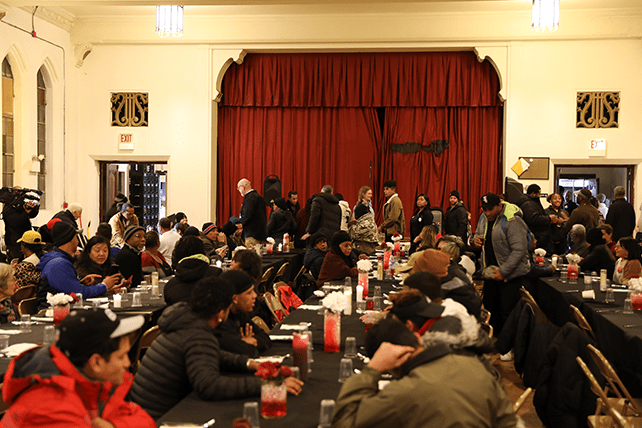(RNS) — Chicago was already facing a homelessness crisis before Texas’ Republican governor, Greg Abbott, began directing thousands of migrants entering his state to Democratic bastions that had declared themselves migrant-friendly sanctuary cities.
Since the transfers began in April 2022, more than 20,000 migrants, many of them destitute Venezuelans, have arrived, and many Chicagoans have expressed concerns that the city’s resources are being drained and have accused government officials of failing to communicate about the migrants’ cost and their fates.
At the same time, advocates for the migrants, especially community organizers in more vulnerable neighborhoods, have pushed back against attempts to pit two marginalized groups against each other. These groups have stepped up to support the new arrivals and in many cases have found allies in local faith leaders.
When the Rev. David Black, pastor of the historic First Presbyterian Church of Chicago, in the city’s South Side, learned that migrants would be housed at a shelter just two blocks from his church, he knew his congregation would need to help the neighborhood respond.
“There’s already plenty of need present in this community,” Black told Religion News Service. The challenge, he said, was “to support those who are coming into the community and also find ways that the situation can be a support to people who are historically living in the community.”
As Black considered what this support should look like, he was having conversations with local leaders such as Paula Gean, founder of Chicago4All, which works to connect long-term residents with new arrivals like the recent migrants.
Gean, who immigrated to the United States from Colombia when she was 3, said she owes her family’s success as immigrants to the support of neighbors in their new home. In her work today, she often looks to churches to play that role and frequently collaborates with faith leaders like Black.
“It’s been really a joy to be able to follow her leadership and vision, and she’s been very, very engaged,” Black said. “She rightly recognizes that in the South Side of Chicago, churches are a really important center of community and civic life.”
Through the partnership with Gean, Black mobilized First Presbyterian to host banquets and community conversations at the church so migrants and neighborhood residents could come together to build fellowship.
A banquet on Nov. 30, attended by more than 150 people, included translators to facilitate communication, and the Rev. Stephany Rose Spaulding, a diversity and inclusion consultant, led conversations on neighborliness.
The Rev. Edward Morris Sr. is pastor of Parkway Gardens Christian Church in the predominantly Black Woodlawn neighborhood nearby. He saw the arrival of the migrants as a natural challenge for his church, which was planted in the 1950s to serve residents of a nearby apartment complex. The congregation decided then to join the Christian Church (Disciples of Christ) because the denomination has a history of mission.
“It’s always been a community-driven church,” Morris said. “On the very front of the church building, it says, ‘For all people.’”

